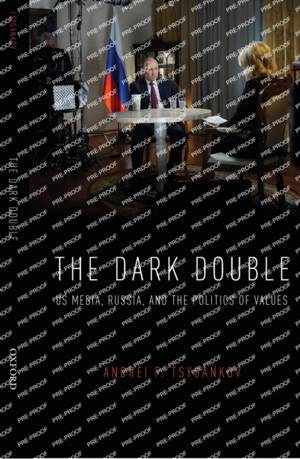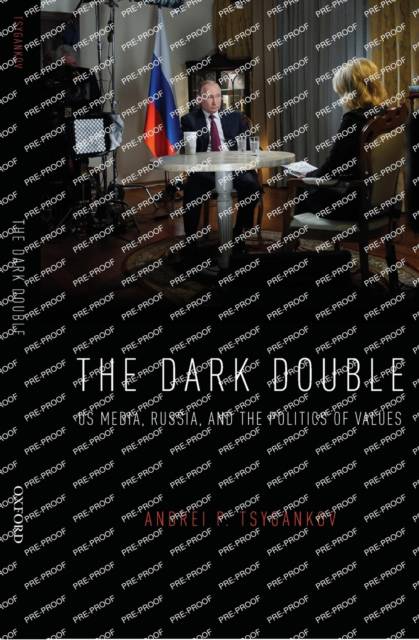
- Afhalen na 1 uur in een winkel met voorraad
- Gratis thuislevering in België vanaf € 30
- Ruim aanbod met 7 miljoen producten
- Afhalen na 1 uur in een winkel met voorraad
- Gratis thuislevering in België vanaf € 30
- Ruim aanbod met 7 miljoen producten
Zoeken
€ 139,45
+ 278 punten
Omschrijving
Although many observers argue that US-Russia relations are a simple reflection of elites' political and economic preferences in both countries, these preferences tend to arise from pre-existing belief systems that are deeply rooted in the public and accentuated by mass media. In Dark Double, Andrei P. Tsygankov focuses on the driving power of values and media, in addition to political and economic interests, in structuring US-Russia relations. By analyzing mainstream US newspapers and other media sources, Tsygankov identifies five media narratives involving Russia since the Cold War's end and studies them through a framework of three inter-related factors: historic and cultural differences between the two countries, inter-state competition, and polarizing domestic politics. He shows how Americans' negative views toward Russia draw from a deep wellspring of suspicion and are further enhanced by a biased media that regularly exploits such negativity, Russia's centralization of
power and anti-American attitudes. Given the intensity of our current impasse with Russia, Dark Double represents an important intervention that forces us to think about the sources of conflict in a new way.
power and anti-American attitudes. Given the intensity of our current impasse with Russia, Dark Double represents an important intervention that forces us to think about the sources of conflict in a new way.
Specificaties
Betrokkenen
- Auteur(s):
- Uitgeverij:
Inhoud
- Aantal bladzijden:
- 180
- Taal:
- Engels
Eigenschappen
- Productcode (EAN):
- 9780190919337
- Verschijningsdatum:
- 22/03/2019
- Uitvoering:
- Hardcover
- Formaat:
- Genaaid
- Afmetingen:
- 213 mm x 145 mm
- Gewicht:
- 317 g

Alleen bij Standaard Boekhandel
+ 278 punten op je klantenkaart van Standaard Boekhandel
Beoordelingen
We publiceren alleen reviews die voldoen aan de voorwaarden voor reviews. Bekijk onze voorwaarden voor reviews.











